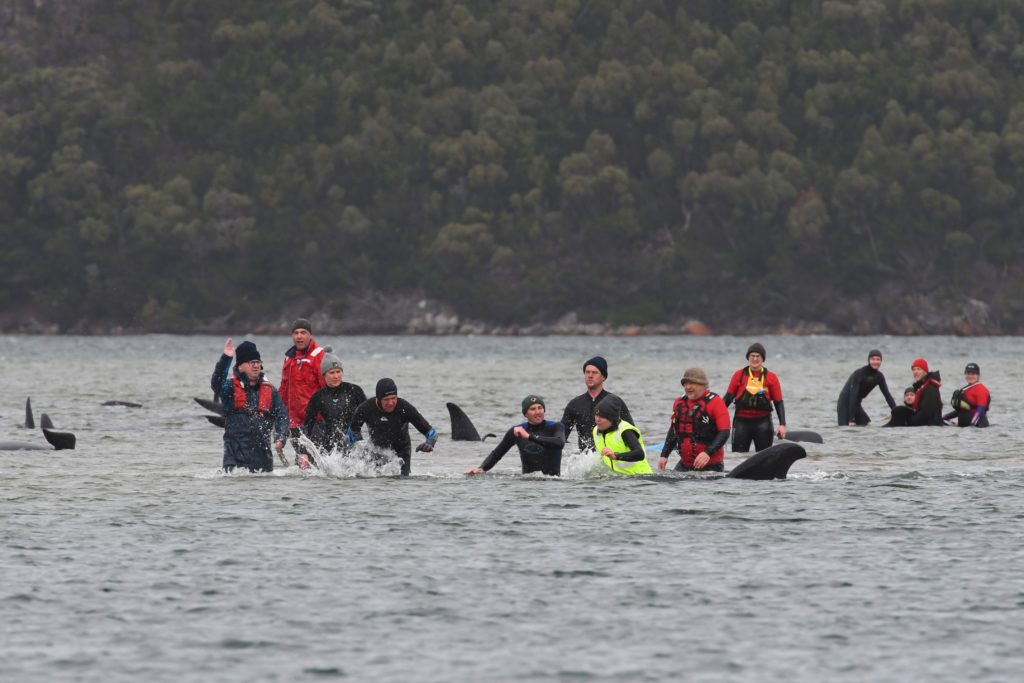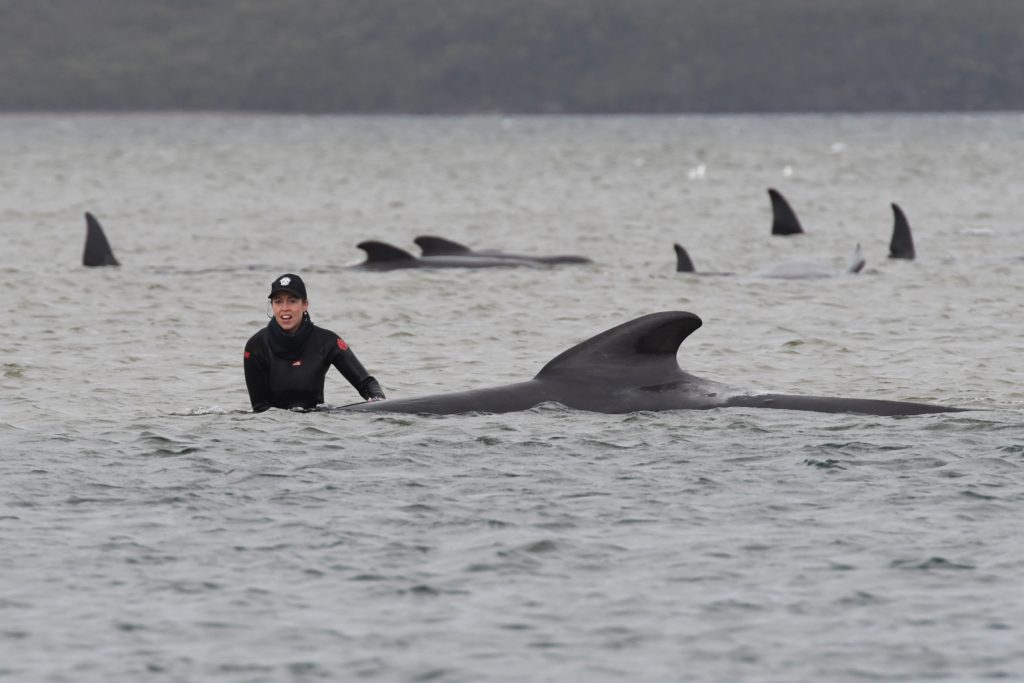AS MANY AS NINETY whales have died after more than 250 became stranded in a harbour near Australia on Monday.
Rescuers have been pouring in trying to save the huge pod, which became trapped in the shallows waters just off the coast of the island of Tasmania.
Those at the scene have reportedly managed to ferry a number of the pilot whales back into open water as of Tuesday morning, but many more lives could be lost if they aren't helped quickly.
It's unknown what exactly causes whales to beach themselves like this, and while individual beaches are far from rare, one of this size hasn't been seen for decades.
Whales are social creatures and form strong bonds with each other, so if one gets stranded or gets into trouble, others in the pod often come to investigate and help. This could be one cause of a mass beaching like this.
 Marine rescue teams attempt to help save hundreds of pilot whales stranded on a sand bar on September 22, 2020 in Strahan, Australia. More than 200 pilot whales are stranded on a sandbank at Macquarie Harbour on the west coast of Tasmania, with rescuers desperately trying to save the whales as more than 90 are feared dead. (Photo by Brodie Weeding/The Advocate - Pool/Getty Images)
Marine rescue teams attempt to help save hundreds of pilot whales stranded on a sand bar on September 22, 2020 in Strahan, Australia. More than 200 pilot whales are stranded on a sandbank at Macquarie Harbour on the west coast of Tasmania, with rescuers desperately trying to save the whales as more than 90 are feared dead. (Photo by Brodie Weeding/The Advocate - Pool/Getty Images)It's estimated that about 270 of the mammals had washed up on a sandbar near a boat ramp, while 30 others were found several hundred metres away. Another 30 were found further inland along the beach.
Rescuers from the Tasmanian Marine Conservation Program arrived late on Monday at the remote tip of the island with limited vessel and road access.
They're trying to "re-float" a number of them, using equipment to push the animals off a sandbar into deeper waters.

"Normally we're dealing with animals high and dry on the beach. This is different. We've got animals semi-buoyant so it probably won't take too much to re-float them - just involves a bit of grunt," said wildlife biologist Dr Kris Carlyon.
Once the whales are moved back into deeper water they can be ushered back out to sea, but moving a animals that can weigh up to three tonnes isn't easy.

